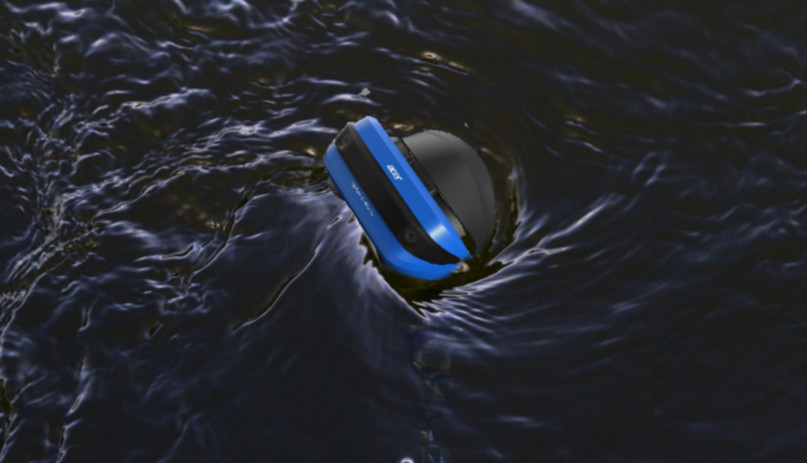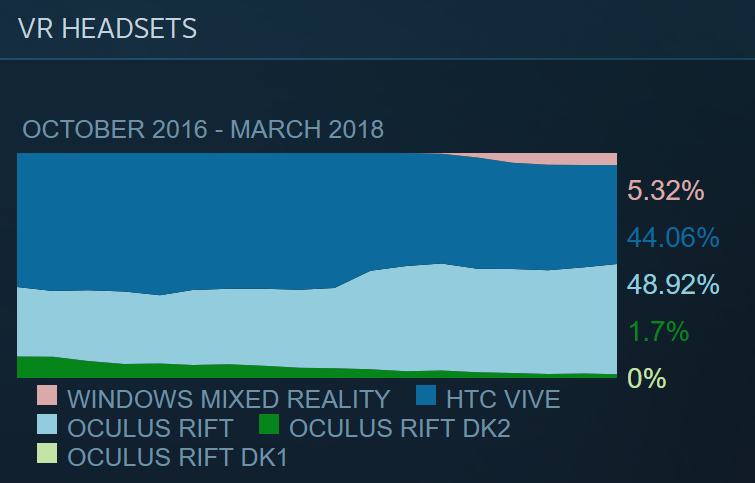Windows Mixed Reality start losing market share as Facebook's Oculus Rift takes the majority of the VR market
2 min. read
Updated on
Read our disclosure page to find out how can you help MSPoweruser sustain the editorial team Read more

Steam’s Hardware Survey numbers are out for March 2018, and while they remain useless for PCs, they do give us a look into the market share of the various VR headsets, due to Steam’s cross-platform support and attractive library of VR games and other applications.
We reported last month on the slowing growth of Windows Mixed Reality headsets, despite steep price cuts, and this month the situation has not only not improved, but WMR headsets have actually started losing market share.
In March 2018 WMR’s share of the headset market stood at 5.32%, down from 5.36% in February 2018. HTC’s Vive headset was similarly embattled, dropping from 45.38% to 44.06%.
It seems Facebook’s Oculus Rift headsets were the main beneficiary and choice of buyers, rising from 47.31% to 50.62%.
This was not how the market was meant to shake out, with Windows Mixed Reality headsets meant to have a built-in advantage due to close relationships with PC OEMs and with Windows 10 offering built-in support for the feature. Despite these advantages, Microsoft is clearly failing to make an impact.
In fact, we recently reported that retailers were removing the headset from shelves and that companies were not interested in developing for the platform
Is there anything Microsoft can do to turn the situation around? Let us know below.
Last month’s numbers can be seen here.










User forum
0 messages